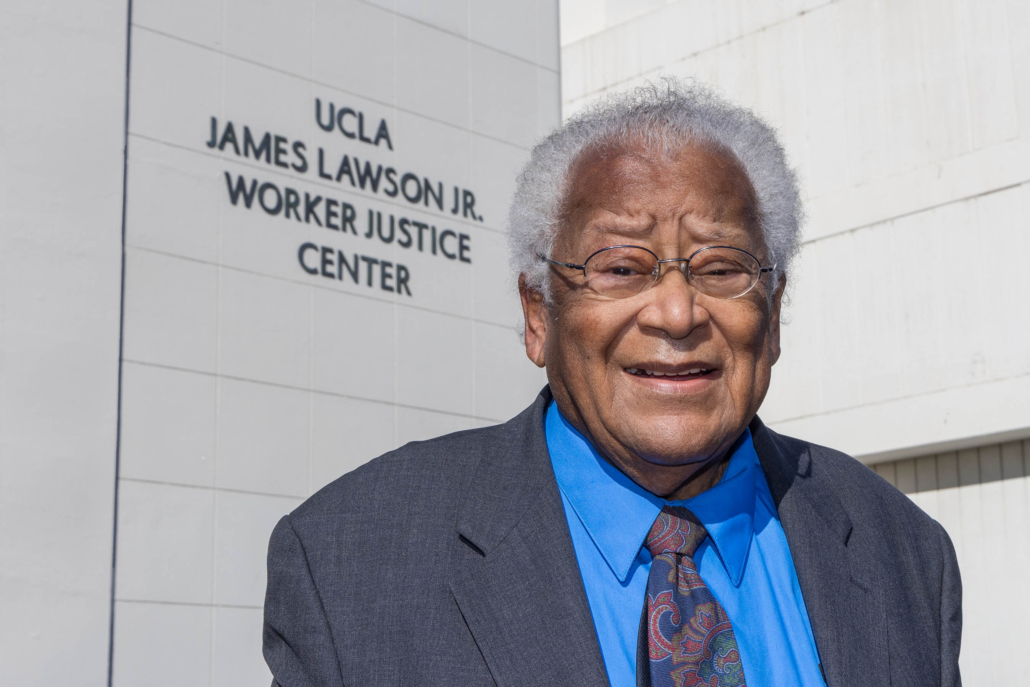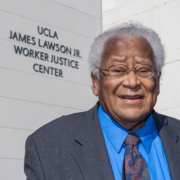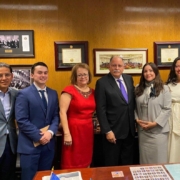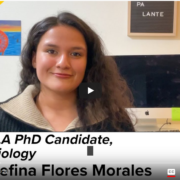
UCLA LPPI’s Founding Executive Director Sonja Diaz and former Policy Analyst Nick Gonzalez meeting with Assemblymember Jose Medina in Sacramento to advocate for ethnic studies as a high school graduation requirement. From left to right: Governmental Affairs Advisor Marvin Pineda, Nick Gonzalez, Senator María Elena Durazo, Assemblymember Medina, Sonja Diaz, Assemblymember Wendy Carrillo.
By: Alise Brillault
December 16, 2021
UCLA Latino Policy and Politics Initiative’s (UCLA LPPI) makes sure that their research does not just sit on the proverbial dusty shelf. Through indefatigable mobilization, advocacy and partnership efforts, UCLA LPPI ensures that the crucial data they uncover about the issues that matter most to Latinos gets into the hands of lawmakers. In fact, numerous California state bills were passed in 2021 due to UCLA LPPI’s research and advocacy efforts.
In a win for the comprehensive education of California’ s students, AB 101 was signed into law this year – making California the first state in the nation to mandate ethnic studies as a high school graduation requirement. Contributing to the efforts that drove the passage of AB 101, Nick Gonzalez, a former policy analyst at UCLA LPPI, authored a report on the importance of ethnic studies curriculum in a state whose students are increasingly students of color. Gonzalez also met multiple times with Assemblymember Jose Medina to present evidence that ethnic studies coursework in high school is associated with improved attendance, higher test scores and better interracial relations amongst students of all ethnic backgrounds.
“Our research affirmed the convictions of state legislators who understand the need for students of color to see themselves reflected in the history they are taught,” said Gonzalez. “Not only does Ethnic Studies help students of color develop a deeper connection with their American identity, but it is also correlated with improved academic performance.”
Gonzalez and UCLA LPPI strategized with Assemblymember Medina on how to get the Ethnic Studies bill passed, including providing key insights for an op-ed Asm. Medina penned with UCLA LPPI faculty expert Dr. Laura Gomez. While the first attempt at passing the Ethnic Studies bill failed in 2020, the strategic groundwork Gonzalez and UCLA LPPI laid paved the way for AB 101 to pass easily this year’s legislative session.
In another win, AB 443 was also signed into law this year. This bill allows for the creation of a statewide fellowship program for doctors who received their medical degrees abroad; this will help to increase the pool of Spanish-speaking doctors amidst California’s Latino physician shortage. UCLA LPPI faculty experts Dr. David Hayes-Bautista and Dr. Yohualli Balderas-Medina Anaya have been studying this crisis for years and have co-authored multiple reports and policy briefs on the topic alongside other UCLA LPPI faculty experts.
“There is an overall shortage of physicians in the state of California – and it’s even worse for Latino and Spanish-speaking physicians,” explains Dr. Anaya. “This imbalance of supply and demand of physicians is only predicted to continue in the coming years as Baby Boomers retire.”
Dr. Hayes-Bautista points to policies enacted in the 1980s that limited opportunities for international medical graduates (IMGs) to practice medicine in California. Such policies were implemented due to a (later disproven) fear that the state was edging towards having “too many” physicians. In fact, the opposite proved to pan out. Now, approximately 7 million Californians live in a Health Professional Shortage Area (HPSA), with Latinos, African Americans and Indigenous people overrepresented as residents of HSPAs.
In addition, structural barriers that have prevented Latinos from studying and practicing medicine has led to a gross underrepresentation of Latino physicians vis-a-vis their share of the population. “If current trends continue,” Dr. Hayes-Bautista says, “It could take up to 500 years to make up for the shortage of Latino physicians.”
In light of this research, UCLA LPPI partner AltaMed Health Services co-sponsored bill AB 443 with Assemblywoman Wendy Carrillo. With the bill passing, IMGs will be permitted to participate in postgraduate fellowship programs in the state of California to be able to practice medicine here. This will help increase the pool of Spanish-speaking physicians, improving doctor-patient language concordance – which, as Dr. Anaya points out, “is positively associated with better health outcomes and access to care in a state with significant Spanish-speaking populations.”
These wins were significant, but there were areas where UCLA LPPI’s weren’t as successful and additional efforts to move the policy needle will be needed in 2022. For example, UCLA LPPI’s political appointments advocacy work helped spur the introduction of a bill to track the diversity of gubernatorial appointments in California. One of UCLA LPPI’s partners, Hispanas Organized for Political Equality (HOPE), co-sponsored the bill, SB 702, in the legislature with Senator Monique Limón.
“To achieve gender and racial parity, understanding the current landscape is the first step,” says Vanessa Spagnoli, policy director of HOPE. “SB 702 would have created a baseline report about what voices are missing in the over 3,000 appointments to boards, commissions and the judiciary that the governor makes every year.”
Given Governor Gavin Newsom’s veto of the bill, UCLA LPPI’s current work around tracking the demographic diversity of the judicial appointments will prove even more crucial for accountability. In addition to diligently researching and documenting the demographic information of appointed justices, UCLA LPPI’s mobilization team has urged Governor Newsom to make history by appointing a Latina to the California Supreme Court. As Spagnoli asserts, “We remain committed to fighting for fair representation, and our commitment is unwavering.”
With the 2022 midterm elections approaching, ongoing uncertainty around the state of the economy and the COVID-19 pandemic, and census data showing Latinos as primary drivers of U.S. population growth, UCLA LPPI’s political mobilization work will prove even more consequential in the coming year. The 2020 census also revealed Latino populations to be growing fastest outside of California and other states with traditionally large Latino communities. As such, UCLA LPPI recognizes the necessity of deepening its advocacy efforts with partners in states such as New Jersey, Illinois, and Florida. UCLA LPPI is committed to using the convening power of the nation’s leading public university to connect innovators who can write change into law.






